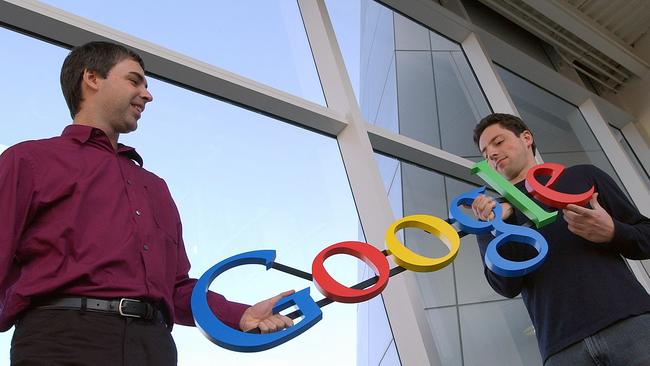How Google tracks your moves
In 1999, the company had a line in its privacy policy, that it “only talks about our users in aggregate, not as individuals.’ That line was removed three months later, and 20 years later is a stark reminder of just how different the Google of today is.
Read more: John Durie on why this case is so important | ACCC court action alleges Google misled users
The vast bulk of Google’s revenue in 2019 comes from its proprietary advertising service, Google AdWords, which uses an algorithm to serve the most relevant results for your query, based on your personal information.
Viewing Google’s ad settings page, I learned that Google knows I’m between 25-34 years old, that I like ordering food via Deliveroo, that I’m in a relationship but not a parent, and that I like listening to music via Spotify. It says I have an interest in travelling to New Zealand, enjoy action and adventure films, as well as watching American football. It also says I have a high household income and enjoy home and interior design. Its deeply imperfect yet lists more attributes and interests about me than maybe many of my close friends could, which it’s then using to inform what ads it shows me.

Read more: Google parent Alphabet’s profit disappoints
The scale at which Google is doing this is massive. There are more than two billion Android users worldwide, while hundreds of millions of iPhone users use Google’s Maps and Search products. Google has at its fingertips billions of complex, imperfect profiles of its users, most of whom would have little understanding of just how much data they have given over.
Google tracks your whereabouts and not just what city you're in, but barometric readings - meaning your altitude, your Wi-Fi's frequency and strength, and activity scans, for example if you're driving, stationary or on foot. It even learns things while you sleep; the details of your neighbours' Wi-Fi networks, and that it knows you're "still, with confidence." Other information submitted by Android phones back to the mothership include your phone's charge level, and what exact type of phone you have. Altogether, it amounts to a giant company being aware of your every move.
Google’s motto used to be ‘don’t be evil’, and is now ‘do the right thing’. A more accurate motto might be ‘do the right thing … once the federal court orders us to”.
The company’s success relies on knowing as much about you as possible, and the ACCC is alleging that to do so it obfuscated the ability for you to turn that off. The watchdog’s actions, combined with pressure from the EU and elsewhere, might force Google to be more upfront about its data practices. The company has so far, however, proven an untrustworthy assistant to our daily lives.



Google’s mass collection of user data goes to the very heart of its business model and is crucial to everything the tech giant does. Google and its parent company Alphabet make their money through highly-specific targeted advertising, tailored to your interests, your location and your most intimate information. Google has come a long way from its humble days as a search tool, and its old motto of “don’t be evil”. Its tentacles now extend to services like weather, traffic, news, shopping, and even a personal assistant in your ear, which all rely on your location as well as rich data about who you are in order to function.